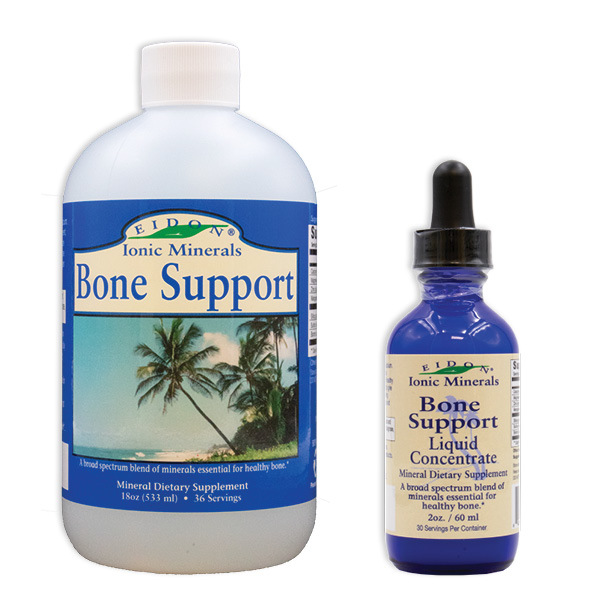
Osteoporosis is not a lack of calcium or vitamin D. Contrary to popular belief, calcium is replete in our food supply and our bodies make vitamin D. There is now research which shows that excess calcium intake may even increase bone loss.
Bone is about 20% calcium and 80% collagen with a small amount of other essential trace elements. Calcium gives bone rigidity and is extracted from bone by the body for cellular enzyme activity when the diet is lacking calcium. Since most raw vegetables and fruits provide ample amounts of calcium, our basic day to day supply is adequate if one follows a diet high in these important foods. The other 80%, collagen, provides bone with its flexibility. The mineral primarily responsible for collagen formation is silicon. In nature, we find good sources of this mineral in the husks of grains. We rarely eat unrefined grains in today’s diet. Consequently, we rarely obtain an adequate supply of silicon in our diets. We normally find silicon bound to oxygen (SIO2). This form is called Silica. In the mineral word, quartz and Silica sand are its most common and accessable sources.
Silica actually deals with calcium in 2 ways.
1. Silica lays down the bone collagen matrix with which calcium can then attach.
2. Silica is a calcium management element and will keep calcium from depositing in areas of the body where it should not be, e.g. soft tissue, artery walls, organs (as stones) or in joints resulting in Osteoarthritis. Without this essential element, regardless of how much calcium you consume, you will not be able to rebuild lost bone. What will happen though is the body will have a difficult time getting rid of all the excess calcium. Recognizing calcium as an essential mineral (it is essential for nerve conduction and blood clotting) your body wants to hold on to it. If it can’t put calcium into bone (because of inadequate silica levels) your body will put anywhere it can.
Ask yourself how many women you know who have reversed Osteoporosis by taking calcium. Also, see if you can find any studies proving this assumption. Then ask how many women diagnosed with Osteoporosis also have arthritis or hardening of the arteries. The correlation goes way beyond happenstance. The other thing you should know is that Fosamax, or any other drug designed to stop Osteoporosis, is completely ineffective at rebuilding bone. All Osteoporosis drugs are designed to stop bone resorbtion (the bodies’ way of accessing bone for necessary minerals). These drugs also stop the bone’s ability to absorb minerals when the diet is replete in them. In other words baring any negative side effects, these drugs will freeze bone in its present state at best.
To conclude, minerals of the right type and ratios are the only thing which will keep bone both strong and flexible. The most important mineral is Silica – not calcium. Should you be interested in discussing this topic further, please don’t hesitate to call.








